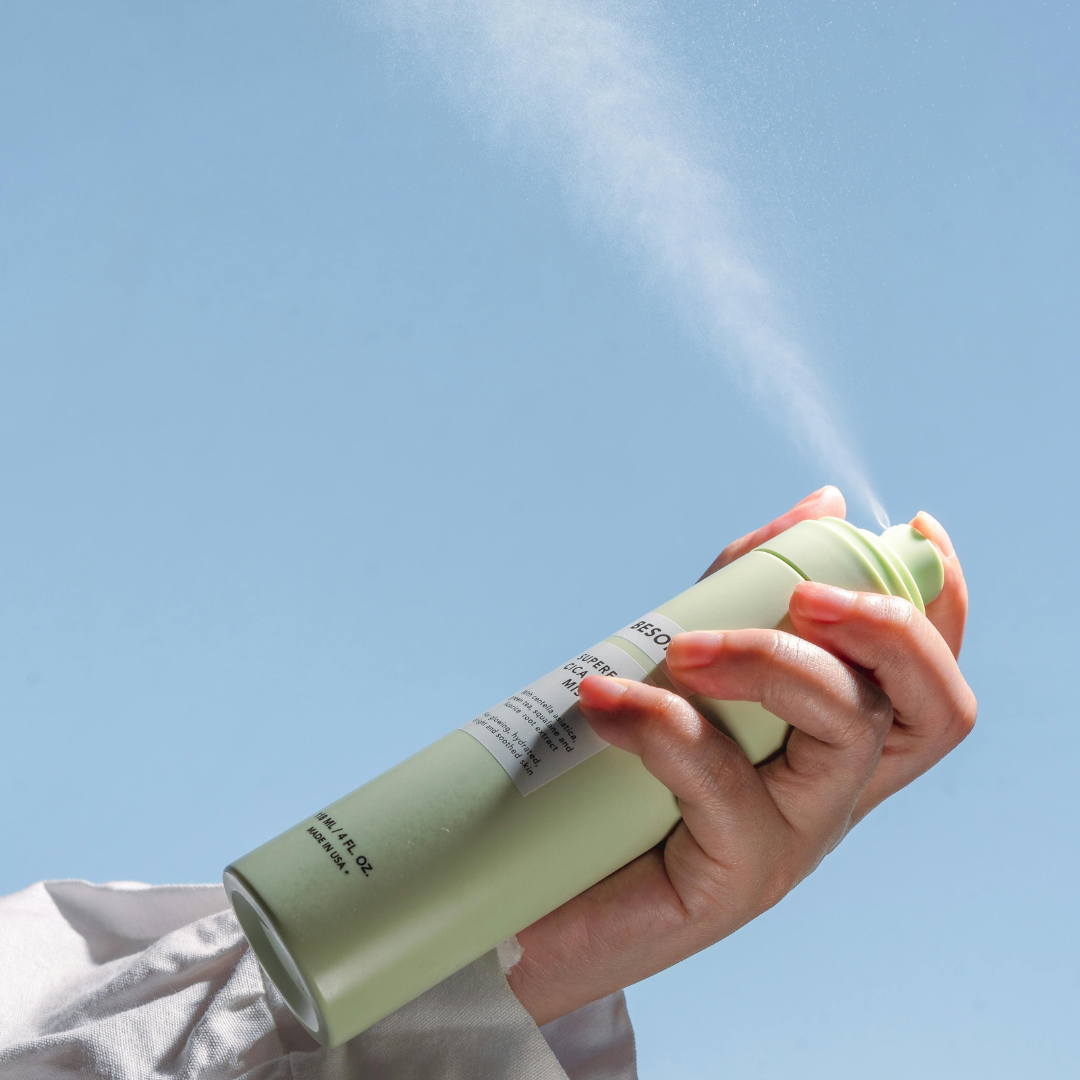What age should your teen start using deodorant?
Spotting the signs it’s time

Updated December 2, 2025 • Medically reviewed by Dr. Katie Knight
Medically reviewed by Dr. Katie KnightIn this article
Quick summary
- Teens typically start needing deodorant when they hit puberty, usually between ages 8 and 14
- Body odour happens when sweat and bacteria interact, and hygiene habits – including deodorant use – are key to managing it
- Parents can guide teens in choosing the right products by letting them explore it themselves, and offering pointers to help them find the best one such as using an anti-perspirant specifically

From growth spurts to voice changes, there is so much going on during the stages of puberty, and body odour is one of the more noticeable shifts.
For many parents, the question comes up: when should my teen start using deodorant?
Introducing deodorant at the right time is about more than masking smells.
It’s an opportunity to teach hygiene habits, boost self-confidence, and help your teen take charge of their own self-care.
So what are the signs that it’s time for deodorant, and how can you choose the right product for your teen?
When do teens typically start needing deodorant?
Every teen is different, and there is no specific age when they should start wearing deodorant.
However, many start during puberty, which usually happens between the ages of 8 and 14.
If you aren’t sure, keep an eye out for:
- Noticeable body odour during sports or daily activities
- Sweat stains on shirts or clothing
- Increased self-awareness or embarrassment about smelling or comments from others
Once these signs appear, it’s a good time to introduce deodorant – even if it’s just a mild, unscented version at first.
What is the best deodorant for teens?
Choosing deodorant can feel overwhelming with so many options, but the key is finding a product that suits your teen’s age, skin type, and activity level.
Start by explaining the difference between deodorant and antiperspirant to your teen:
- Deodorant: masks or neutralises odour caused by sweat and bacteria but it does not reduce the amount of sweat
- Antiperspirant: contains active ingredients (usually aluminium-based) that temporarily block sweat glands to reduce perspiration, which can also limit odour
For most younger teens just starting puberty, deodorant alone is usually sufficient. But if this doesn’t work then go for an antiperspirant.
Antiperspirants are generally safe for teens, but it’s best to start with low-strength formulas if needed and encourage proper application.
When selecting a product, consider:
- Application type: roll-on and stick deodorants are easier to use than sprays (and better for the environment)
- Ingredients: certain ingredients in antiperspirants can cause irritation – you may want to choose an aluminium-free option for sensitive skin
- Fragrance: it can be helpful to start with unscented or lightly scented products to avoid overwhelming perfumes
- Activity level: active teens may need long-lasting formulas to manage sweat during sports
Are deodorants and antiperspirants safe for teens?
Yes, when used as directed, both deodorants and antiperspirants are generally considered safe for teens.
Aluminium-containing antiperspirants have been studied extensively and are safe for regular use.
However, teens with sensitive skin may experience irritation or redness, so starting with gentle formulas and testing on a small area is recommended.
How do you tell a teen they need deodorant?
Talking to your teen about deodorant can feel incredibly awkward (for you, but also them), so approaching it with care is very important.
Start by normalising the change: explain that body odour is a normal part of growing up and that everyone needs to manage it.
You might say something like, “Shall we find a deodorant for you to add to your morning routine?”
Involve your teen in choosing the product, letting them pick a scent or style they like so they feel like it’s their decision.
Framing it as a very normal step toward independence that everyone goes through may help to reduce embarrassment and encourage a positive attitude toward personal hygiene.
If you are struggling with how to have this conversation or you feel mortified by the thought of it, luna can give you a helping hand as in our app we outline all the common signs of puberty and offer tips to help – including body odour.

Supporting your teen through puberty
Introducing deodorant is more than just controlling body odour – it’s a chance to teach healthy hygiene habits, self-care, and confidence.
Every teen develops at their own pace, so watch for cues they need extra hygiene tools, offer guidance, and let them take ownership to avoid any embarrassment or push back.
With the right approach, hopefully your teen will feel prepared to manage their body odour (and other pubertal changes) with confidence.
If you need advice on supporting your teen through puberty, remember that luna is always here for guidance and encouragement.

How we created this article:
luna's team of experts comprises GPs, Dermatologists, Safeguarding Leads and Junior Doctors as well as Medical Students with specialised interests in paediatric care, mental health and gynaecology. All articles are created by experts, and reviewed by a member of luna's senior review team.
Sources:
Connecticut Children's "When is it safe for kids to start wearing deodorant or antiperspirant?" | Accessed 12.09.25
https://www.connecticutchildrens.org/growing-healthy/ask-a-pediatrician-deodorantKidsHealth "Deodorant" | Accessed 12.09.25
https://kidshealth.org/en/parents/deodorant.htmlCleveland Clinic "Itchy armpits" | Accessed 12.09.25
https://my.clevelandclinic.org/health/symptoms/24327-itchy-armpitsNHS "Body odour" | Accessed 12.09.25
https://www.nhs.uk/symptoms/body-odour-bo/We'd love to keep in touch!
Sign up to our parent newsletter for emails on the latest teen trends, insights into our luna community and to keep up to date
By signing up, you are agreeing that we can use your email address to market to you. You can unsubscribe from marketing emails at any time by using the link in our emails. For more information, please review our privacy statement.